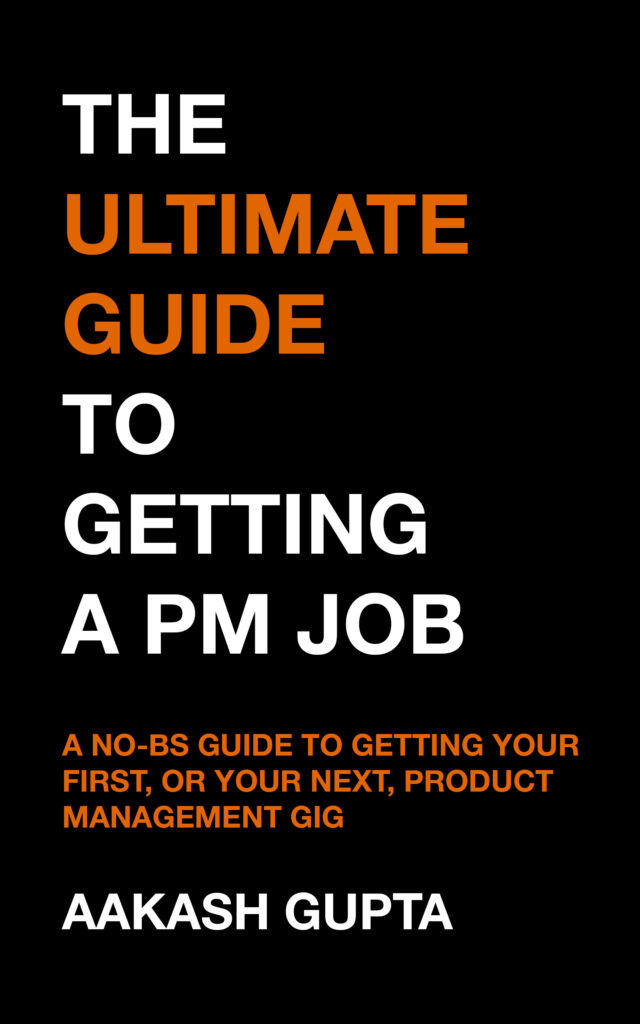The Ultimate Guide to Getting a PM Job
One of the best benefits of a paid subscription to Product Growth is you get access to the book:
Getting a Product Management (PM) job is tough. Whether you have experience or not.
And in today’s market, it’s tougher than ever. With thousands of laid off big tech PMs on the market, the supply and demand dynamics are brutal.
Experienced PMs are finding their recruiting funnels turned upside down. One Director of Product I worked with for this book had 3 offers the last time he was recruiting, in 2018. He hadn’t even applied to more than a handful of jobs.
When he reached out to me, he had applied to over 110 jobs, had over 15 interviews, and still hadn’t received an offer. This gentleman’s situation is not uncommon in the new job market of Product Management.
The world of 3 simultaneous offers was a zero percent interest rate phenomena (ZIRP). Drunk off topline growth, tech companies grew without abandon. That market is totally gone now.
But that doesn’t mean you can’t go get an upgrade in your pay or scope by finding another job. I’m happy to report we secured that Director of PM a job which pays 15% better than his last one, at a company whose mission he more closely aligns with.
I myself got a VP of Product job in this market, an upgrade in title and scope. So, I speak from experience: You can do it.
More importantly, you need to do it. Here’s why.
The Trimodal Distribution of PM Compensation
Many people don’t realize quite how much more they could be making.
The overall distribution earnings in Product Management is Trimodal. That’s because it’s actually made up of three separate distributions:
Here’s how it works.
Most companies benchmark locally. These are typically your small to medium businesses. They usually look at the employers in their city or state. For instance, where I live in Research Triangle Park, NC, most startups will pay $70K for a Product Manager. That Product Manager actually feels well paid, too. That’s the most common pay in the whole distribution.
Then there are some companies that benchmark regionally. These are typically your large businesses that still tend to hire from the region. They have a wide band of pay, because they do hire globally sometimes. But, normally they’ll pay a Product Manager something like $120K in my area. That Product Manager usually feels rich! They make almost twice their friends.
But there are also companies that benchmark globally against the top-tier. These are your >$100B market cap companies, as well as other large companies that want to hire out of those behemoths. Both Google and Apple pay Product Managers in my area $550K! That’s fully 8x more than the startups – where, mind you, no one was unhappy.
This phenomenon is global and exists everywhere. In India, there are Product Managers working for venture-backed startups in Bangalore for ₹ 7.5 Lakhs per annum. Across town, similarly tenured PMs working for Google earn more than ₹ 78 Lakhs per annum. That’s more than a 10x earnings gap.
PM is one of the few careers in the world where you can earn substantially more just by upgrading where you work. Why? Because, you’re not going to double, triple, or 10x your salary within your current company overnight.
To do that, you need to have the skill of getting PM jobs. Even in this market. And that’s where this book comes in.
You Don’t Need PM Experience
Moreover, you can break into this lucrative career without any experience. In this market, where every job seems to ask for three years minimum of PM experience, it’s hard to believe.
But people are making it happen. Some are doing internal transfers. Others are breaking into entry level roles.
Many of them are changing their lives. For instance, a customer support person in Texas I worked with for this book went from making $35K a year to $100K. That’s life-changing money for her and her two kids.
It all comes down to using the tools in this book.
This vs Other Books
What’s the difference between this book and the several other good books that exist out there to get a PM job (like Decode and Conquer and Cracking the PM Interview)?
Those books are primarily targeted at early-career PMs: This book is packed with information for people who want to succeed in interviews as tenured product professionals.
Those books are outdated: The best-selling books were written many years ago. The PM market was very different back then. Plus, now that so many PMs have read those books, the alpha from their tips has evaporated.
Those books are focused on the interview step: The interview step isn’t even the hardest these days. It’s actually getting an interview. This book actually helps you with that step, as well as negotiating the offer after.
So, what are you waiting for? Subscribe now to get access, or if you prefer a paper copy, head over to Amazon.


